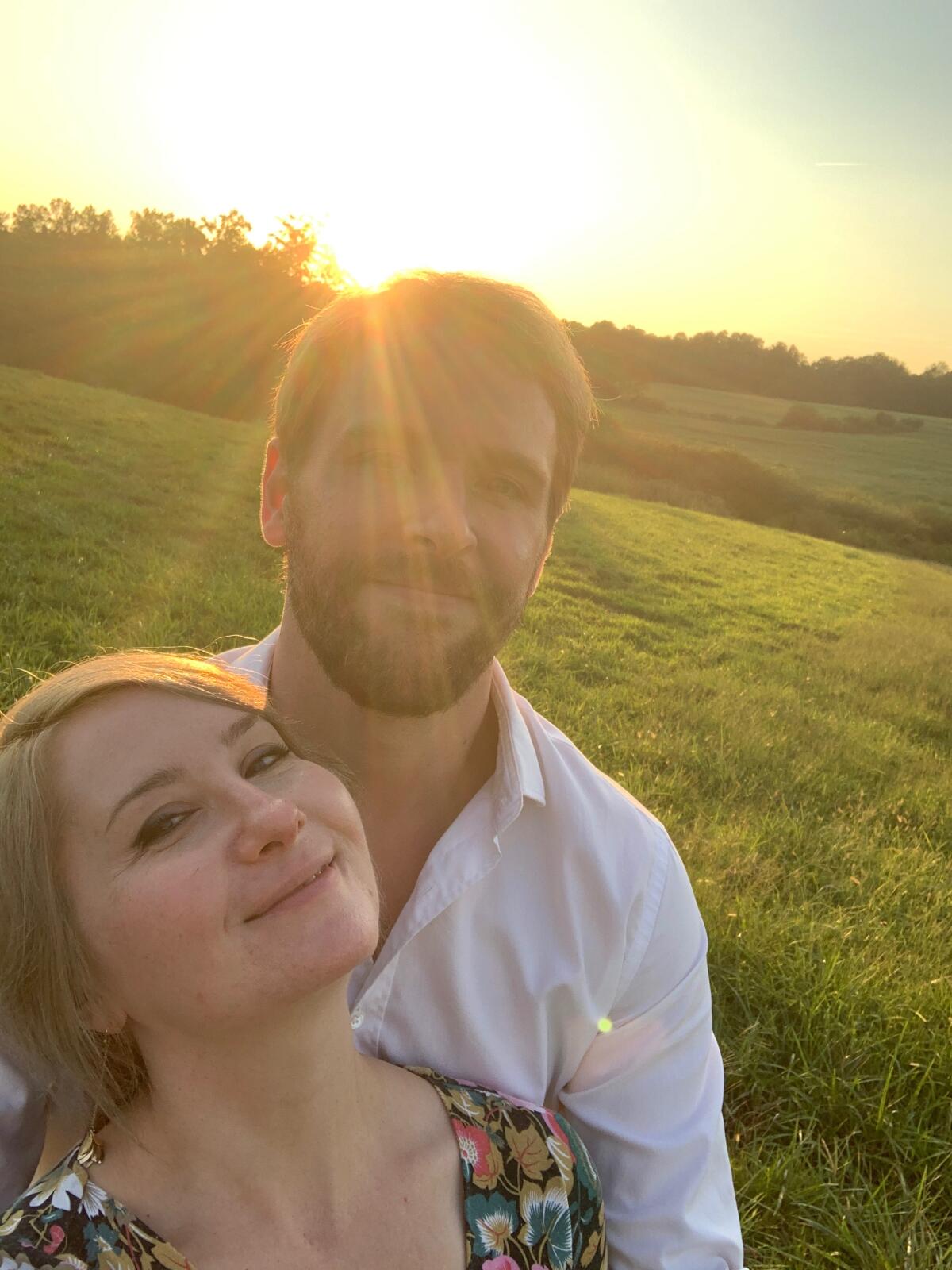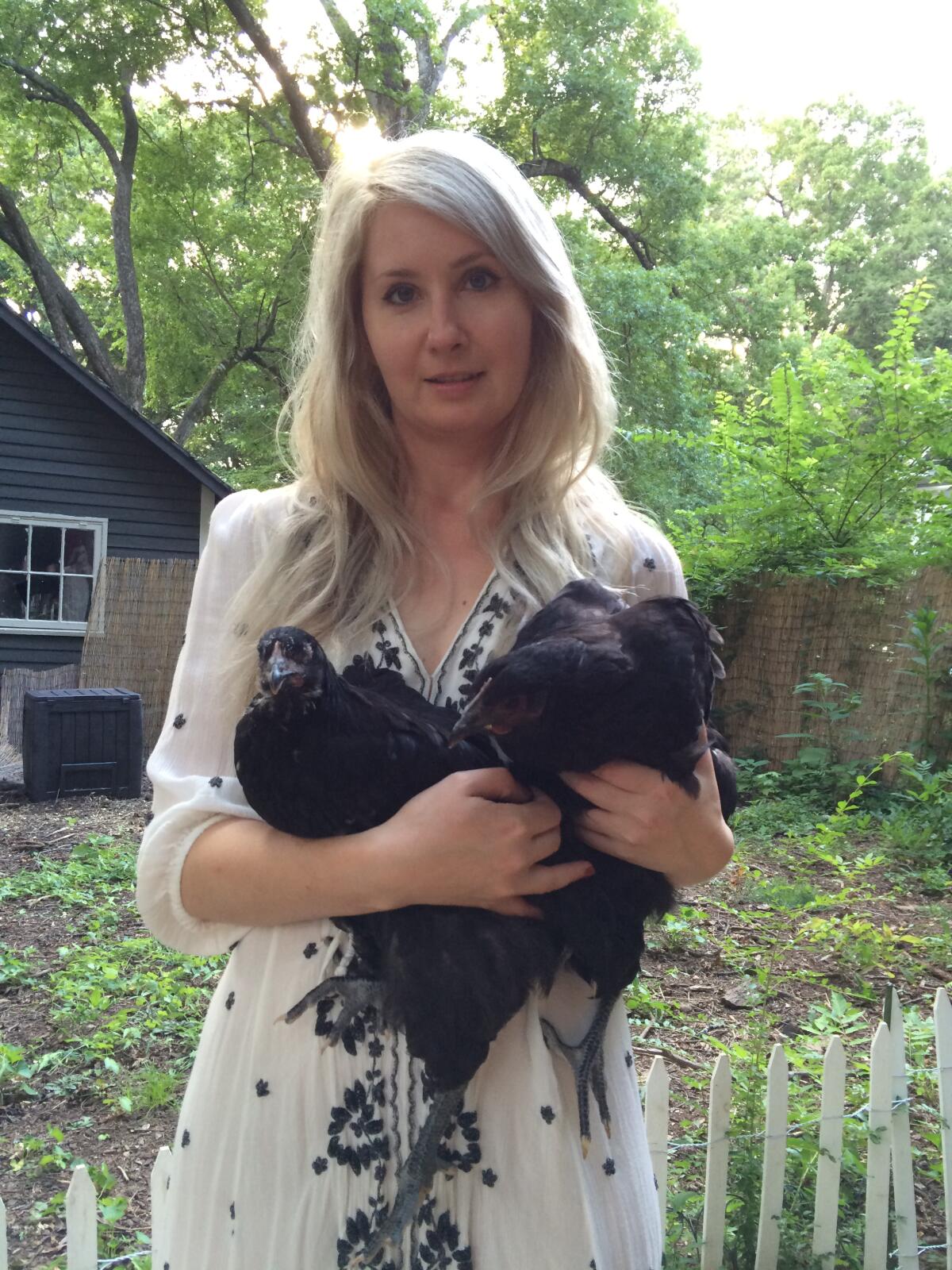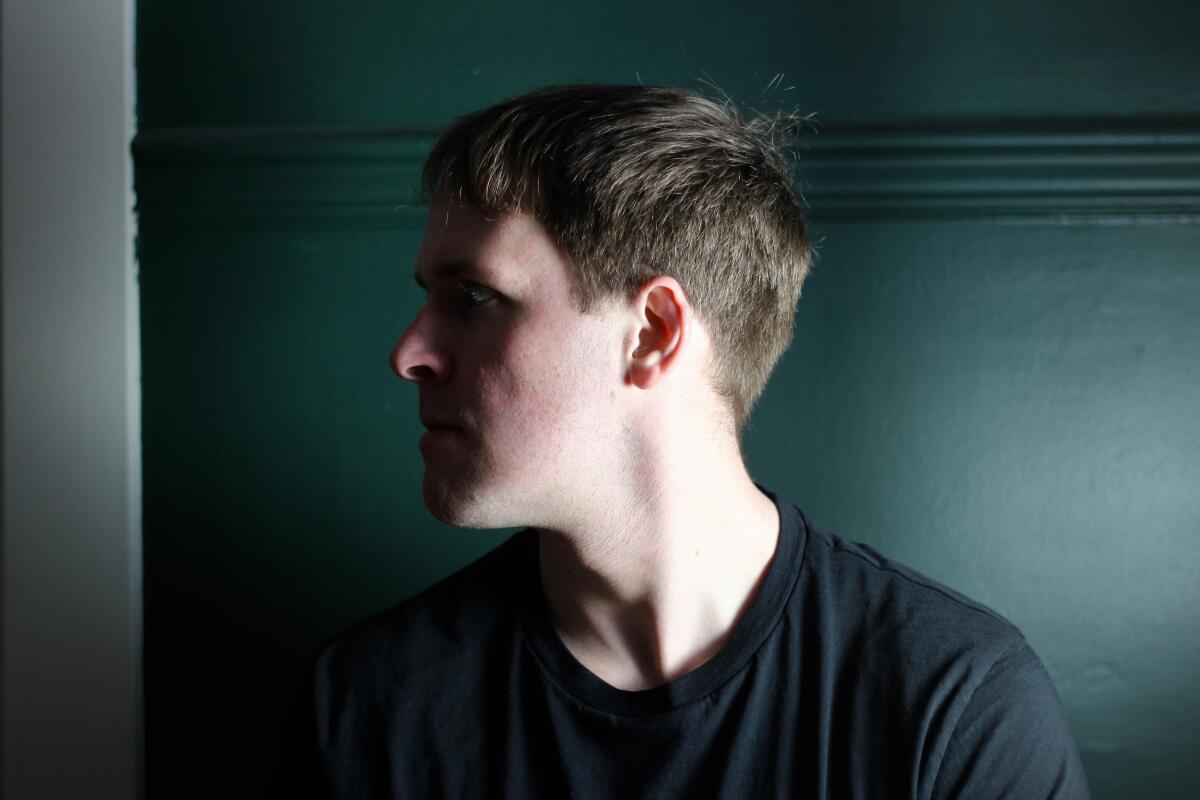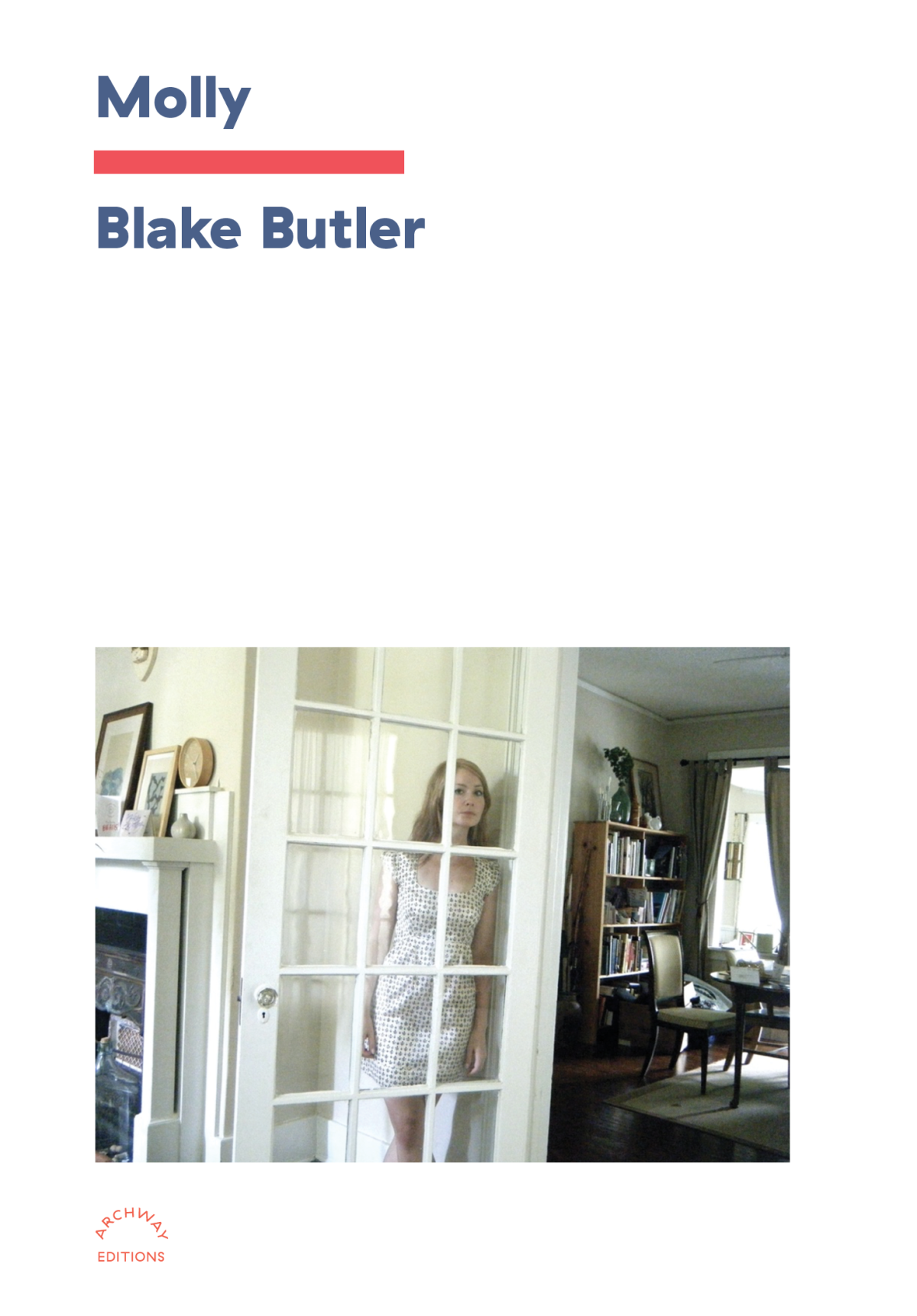‘Another kind of violence’: ‘Molly,’ a memoir of a wife’s suicide, never blinks

- Share via
Review
Molly
By Blake Butler
Archway: 320 pages, $18
If you buy books linked on our site, The Times may earn a commission from Bookshop.org, whose fees support independent bookstores.
Warning: This story involves extensive discussion of suicide.
When a writer took her own life on March 8, 2020, at age 39, her husband tweeted into the void: “My partner Molly Brodak passed away yesterday. I don’t know how else to tell it.”
Three years later, Blake Butler is telling the story of Molly’s death and the 10 years they spent together in a terrifyingly intense and eerily spiritual book.
One man’s death may not have been preventable, but understanding what led to it offers hope for others.
There is a curiosity over every death — we are ashamed to ask “how did it happen?” and yet we need to know. This is doubly true of someone young and promising. And on the most superficial level, Molly’s story is an interesting one. But Butler’s talent as a writer makes this book into more than grisly fascination. “Molly” forces its reader to look deeply into the well of intergenerational trauma, neglect and, most of all, responsibility — the artist’s responsibility to art and themselves, our responsibility to one another as human beings.

“Molly was troubled — that was clear,” Butler writes of their first days together. At their earliest meeting, she flashes her MRI results (she had suffered from a brain tumor) and tells Butler about her criminal father, whom she wrote about in her memoir, “Bandit.” Butler is troubled too. Using alcohol to cope, resulting in blackouts and dangerous behavior, he writes at the end of a work-in-progress, “The only way for me to complete this book is to kill myself.”
Molly makes it clear she wants to be with him. “Even if you want to be dead inside,” she writes to him, “I would still kiss your dead eyes.” But “much like love,” Butler reflects, “death always seemed to be on Molly’s mind. At times I sensed a part of her long locked up without a key, its entombed voice egging her on with grim ideas.”
The book begins with an account of Molly’s suicide. After reading that terrible morning of Molly’s choice, the reader is compelled to race through the rest of Butler’s memoir at the same brisk, bracing and brutal pace. The structure of the book mimics the experience of grief: shock, devastation, seething anger and — not acceptance, exactly, but perhaps grace.
Heather Clark fuses new discoveries and eye-opening analysis in an inspiring biography, “Red Comet: The Short Life and Blazing Art of Sylvia Plath.”
Butler’s experience recalls that of Ted Hughes in the wake of Sylvia Plath’s death. But unlike Hughes, who destroyed Plath’s last journals and set down the iron curtain on her last days, Butler rather bravely and obsessively goes through Molly’s final journals, poems, emails and social posts, sharing them not only with the lunacy of the bereaved lover but, thankfully, the brilliance and drive of a writer.
Suicide prevention and crisis counseling resources
If you or someone you know is struggling with suicidal thoughts, seek help from a professional and call 9-8-8. The United States’ first nationwide three-digit mental health crisis hotline 988 will connect callers with trained mental health counselors. Text “HOME” to 741741 in the U.S. and Canada to reach the Crisis Text Line.
We peer into Molly’s childhood diaries, her lists of subjects she’d like to write about, of jobs she’d held, brainstorms for what to do next in her career. She gives Butler a gift, a little blue Avon soap box that she’s carried around for years. “It felt,” he writes, “like being let into a dim gray room with many doors, behind most of which I still had no idea besides the smallest sounds that might leak through — a hum of bees, maybe; the silent glint of sunlight against some sea; the low, slow beating of a heart; a little signal sent from somewhere secret laced inside her, just a girl.” Butler’s prose, coupled with the disturbing but necessary questions he raises, makes it the best book I’ve read this year.
Molly’s last journal entries are as beautiful as they are horrifying: “Took a bath, said goodbye to my body. We ate grilled halloumi and made love after dinner and watched our favorite things on TV. Feel like I can see everything with such clarity this morning. I’ve been pretending my entire life.”

Writing Molly’s death and its aftermath, Butler is not afraid of its sinews and gore. “If there were ever a gun in this house,” Molly warns him shortly after they move in together, “I’d end up using it on myself.” His nightmares following Molly’s death (he is the one who discovers her body) are deeply disturbing. “Any effort I might make to stay alive felt at once compulsory and impossible,” Butler writes, “like all there’d ever be left to expect at best was treading neck-deep in blood that looked like water, with a black bag over my head, its fabric lined with mural-style dioramas of the scene of Molly’s suicide inscribed into them, interlaced with miles of smoke.”
The people left behind by a death such as Molly’s are also victims. “Leaving it all out for me to find like that,” Butler reflects of her journals and her suicide note, which she taped to their front door for him to see on his way back from a run, “how she’d made sure I’d be the one to go and find her body, was another kind of violence on its own.”

It is a violence. Butler is not afraid to explore this truth — nor the hard truths about Molly’s lies and manipulations — and any reader hoping to be protected from the realities of his experience should be warned there is no such safety.
At Molly’s memorial service, Butler reads from a “sun-yellow notebook full of forty poems, one for each year of her life, which I’d been working on for months as a surprise for her next birthday, just weeks away …. If only I’d given them to her earlier, I imagined, I might not be up here reading them aloud as for her ghost.”
Butler may not have known “how to tell” Molly’s story at the beginning. He may have wished he had told it sooner, but “Molly” reveals that the black hole of grief, in the eye of the right beholder, spits something back out on the other side. All writing that matters is a matter of life and death. If nothing else it shows that, even in the wake of absolute horror, there is more than silence.
Ferri is the owner of Womb House Books and the author, most recently, of “Silent Cities San Francisco.”
More to Read
Sign up for our Book Club newsletter
Get the latest news, events and more from the Los Angeles Times Book Club, and help us get L.A. reading and talking.
You may occasionally receive promotional content from the Los Angeles Times.







